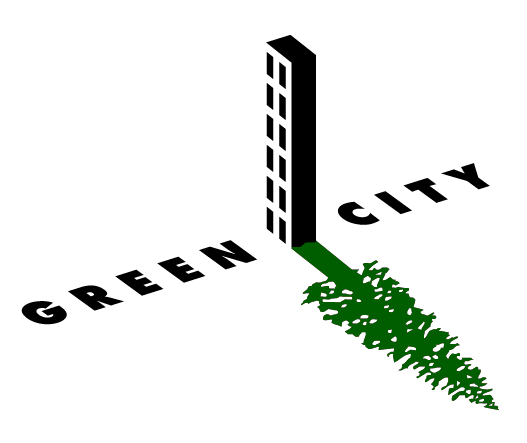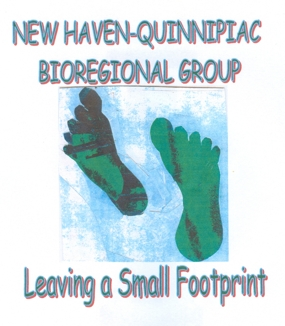[This page is under construction, and will be updated with a more complete index and set of listings of bioregional organizations worldwide. To have your bioregional organization, project, program or association listed in an updated Bioregional Connections page, please fill out this form.]
Bioregions (life-places) are usually identified and named by the people who live in them. They may overlap, include smaller bioregions, and grow or shrink over time. They have “soft borders” — transitions between them may be difficult to distinguish. The borders depend on climate, physiography, animal and plant geography, natural or human history, or other factors.
“Bioregion refers both to geographical terrain and a terrain of consciousness – to a place and the ideas that have developed about how to live in that place.” — Peter Berg
Directory* of Bioregional Groups, Publications and Contacts
(Planet Drum’s most recent Bioregional Directory was published as Raise the Stakes # 24)
More and more people are beginning to consider the well-being of the places the live as central to their own well-being. Ecology-related social transformers recognize that humans have the task of rediscovering what a realistic relationship to their life-place (or bioregion) entails.
Exploring and understanding local bioregions is the natural place to begin to develop a planet-based consciousness. Bioregional groups address community, economics, interdependence and other issues from the perspective that human beings are an interactive species in the biosphere. The activities of “bioregional” groups and organizations may include research and study, bioregional education, place related publications, celebrations of place, hands-on restoration activities, actions for change, etc.
*The Directory is just beginning — not many publications or contacts are included yet. Also change happens, new groups form, maps are created. (Contact Planet Drum if you’d like to help create the online Bioregional Directory.) As it develops, please help keep the Directory current and accurate by contacting Planet Drum Foundation with updates, additions and/or corrections.
While the Online Bioregional Directory is growing, below are connections to bioregional resources (some archival) to use. They are listed by topics. Click to Jump to them:
- Reinhabiting Cities (Urban Organizations)
- Eco Warriors
- International Bioregional Contacts
- Bioregional Publications & Publishers
- Bioregional Frame of Reference
- Sustainability Projects
Reinhabiting Cities (Urban Organizations)
EcoCity Cleveland was a nonprofit organization that promoted a vision of ecological cities existing in balance with their surrounding countryside. Through its publications and projects, EcoCity Cleveland presented innovative ideas for regional land use planning, transportation systems, watershed restoration, ecological redevelopment and other issues. After 15 successful years of promoting the design of ecological cities, EcoCity Cleveland merged with the Cleveland Museum of Natural History. David Beach, creator of Eco-City Cleveland, worked as the director of the Center for Regional Sustainability at the Museum until 2017.
 Planet Drum Foundation continues publishing the Green City Calendar, an online calendar of Eco events, classes, workshops, and volunteer opportunities (Green City Calendar). The New Farm SF is the new identity of the Green City Project (formerly a project of Planet Drum Foundation). The New Farm is a Farm area near the Bay with Native Plants for sale, weed eating goats, live chickens and weekend music events.
Planet Drum Foundation continues publishing the Green City Calendar, an online calendar of Eco events, classes, workshops, and volunteer opportunities (Green City Calendar). The New Farm SF is the new identity of the Green City Project (formerly a project of Planet Drum Foundation). The New Farm is a Farm area near the Bay with Native Plants for sale, weed eating goats, live chickens and weekend music events.
Shaping San Francisco is an incredible resource of all things San Francisco. They maintain an interactive online history archive, have published books and videos and continue to hold forums about important local topics. Click for the index of audio presentations they have held—Also see these short videos Ecology Emerges Series.

Friends of the Urban Forest is committed to the belief that trees are a critical element of a livable urban environment.
![]() Greenaction for health and environmental justice. They confront corporate polluters and their friends in government.
Greenaction for health and environmental justice. They confront corporate polluters and their friends in government.
Guayaquil Green City 2003, An Outline for Bioregional Action by Peter Berg—transcript of a talk detailing urban sustainability based on bioregional realities.
Ithaca HOURS is making a community while making a living in the local Ithaca, NY area. Ithaca Hours are a legal alternative money system that provides an expanded way to barter. Rather than having to construct a two-way trade with only one other person or business, you can earn Hours in a transaction with any of hundreds of members, then spend them with any other. The money is called HOURS to remind us that the real source of money’s value is created by people– our time, skills, and energy.

Urban Ecology Australia, Inc. is a non-profit organization working to promote and create ecologically integrated human settlements. “An eco-city is a city in balance with nature.”

New Haven-Quinnipiac Bioregional Group sponsors walks, films, canoe trips, potlucks, and other events to help residents of the Quinnipiac Bioregion connect with their natural and built environment, and to build community and local resilience. They have been exploring the Quinnipiac Bioregion Since 2005. “Food not lawns.”
Eco Warriors
Friends of the River is dedicated to preserving, protecting, and restoring California’s rivers, streams, and their watersheds.
Friends of the Urban Forest is committed to the belief that trees are a critical element of a livable urban environment.
Global Exchange is a human rights organization dedicated to promoting environmental, political, and social justice around the world.
Guard Fox Watch formed around efforts to raise consciousness about the effects of the 1998 Olympics on the watersheds and environment around Nagano, Japan. In 2002 Guard Fox Watch took up work around the 2002 Salt Lake City Olympics, and then made a site visit in Turin for the 2006 Winter Olympics and a visit in Vancouver, Canada for the 2010 Winter Olympics. Click for an index of Guard Fox Watch’s analyses and press releases. For the 2014 Winter Olympics in Sochi, Russia, concerned locals contacted Guard Fox Watch and the UN Environment committee.
Bay Area Coalition for Headwaters (BACH) is at the forefront of defending our forest ecosystems of North America. BACH collaborates with grassroots activists on California’s north coast and organizations in the SF Bay Area, working to ensure preservation of the redwood forest ecosystem, with real solutions for workers and communities. Headwaters Action Video Collective produced Earth Films, educational video and media that specialized in environmental and social issue documentaries.
Humane Farming Association is leading the campaign against factory-farming and slaughterhouse abuses. They are also home to the largest farm animal refuge, Suwanna Ranch.
Santa Cruz Mountains Bioregional Council is a biodiversity planning and conservation group for the Santa Cruz Mountains (California). Their objective is to conserve native plant and animal biodiversity in the Santa Cruz Mountains Bioregion.
San Bruno Mountain Watch has been working for over 30 years to help protect and preserve San Bruno Mountain as the largest and richest remaining example of the native Franciscan bioregion, elsewhere destroyed in the urbanized northern San Francisco Peninsula. Their mission is to preserve and protect San Bruno Mountain’s native American village sites and endangered habitats. They educate the public, including groups of school children, and watchdog government agencies.
International Bioregional Contacts
A map of Australia’s 89 bioregions as well as their 419 sub-regions is available from the government. They call this project IBRA (Interim Biogeographic Regionalisation for Australia).
The Eco Ecuador page on this website has updates on the collaboration between Planet Drum Foundation and the bioregional eco-municipality community of Bahia de Caraquez, Ecuador.
Italian Bioregional Network (c/o morettig@iol.it) publishes Lato Selvatico magazine and news of the Italian bioregional movement from the Po River Valley to Naples.
Japan Bioregional/Deep Ecology Movement (including Guard Fox Watch) c/o tokim@aomori-u.ac.jp
Bioregional Publications & Publishers
Columbiana is a magazine devoted to the northern portion of the large Interior Columbia River Basin, focuses on environment and culture; including the creation of community based sustainable economics, in harmony with native ecosystems. Contact info:
Columbiana Magazine
P.O. Box 792
Okanogan, WA 98840-0792
509-422-1976 (voice & fax)
email: columbiana@televar.com
New Society Publishers produces books to build a sustainable and just society — accountable economics, conscientious commerce, bioregional theory and practice, ecological design & planning, sustainable living, environmental justice, resistance and community, the feminist transformation, conflict resolution, progressive leadership, and educational and parenting resources. Free catalogue
Resurgence: The Resurgence Trust is an educational charity at the forefront of a movement for change. The charity was established in 2006 to further the educational work of Resurgence magazine. Their bi-monthly magazine Resurgence & Ecologist offers positive perspectives on a range of engaging topics covering ecology, social justice, philosophy, spirituality, sustainable development and the arts.
Bioneers is an innovative nonprofit organization that highlights breakthrough solutions for restoring people and planet. Founded in 1990 in Santa Fe, New Mexico by social entrepreneurs Kenny Ausubel and Nina Simons. For information and action regarding the world’s most pressing social and environmental challenges. News and solutions from our community of thought leaders. Inspirational videos. Updates from our radio show and podcast. World-changing campaign initiatives. The bi-weekly Bioneers Pulse email newsletter is filled with the information you need to be the best citizen of Earth possible.
Bioregional Frame of Reference
CREEC, California Regional Environmental Education Community, is the best source for local environmental education resources in California.
Chrysalis Charter School is a school based on local science and nature education along with general curricula.
The National Water Center Water Harmony Network has been active in the bioregional movement since 1980. They coordinate the Water Committee for the Bioregional Movement. They are located in the Ozarks Bioregional, and for two decades have cultivated and articulated a clean water practice based upon appropriate technology and personal responsibility.
A Proposal for a Bioregional, Thematic Humanities Education was originally written in 1986 to assist Alaskan Educators in creating place-based curriculum for Alaskan schools. The Axe Handle Academy updates the original proposal for internet usage with supplementary hyperlinks, pictures, etc. This website contains the complete original text of the proposal based on the version published in 1986. The order of presentation has been adapted to take advantage of web technology. The original contained no images. The history section and sidebars indicate commentary in the present.
Sustainability Projects
Build It Green is a non-profit membership organization whose mission is to promote healthy, energy- and resource-efficient building practices in California. They offer education, information, technical assistance and training, providing a link between consumers, building professionals and product manufacturers. They work with mainstream stakeholders in the housing industry to accelerate the adoption of green building practices.
The Institute for Local Self-Reliance is a small organization with a remarkable track record for breaking new ground in promoting sustainable communities.
Native Perspectives on Sustainability offers insight from contemporary indigenous leaders from Salmon Nation to inform and enrich the public dialogue on sustainability and nurture bioregional thought and practice. They believe indigenous voices provide a valuable contribution to the dialogue on how to live in our shared home for countless generations to come.
